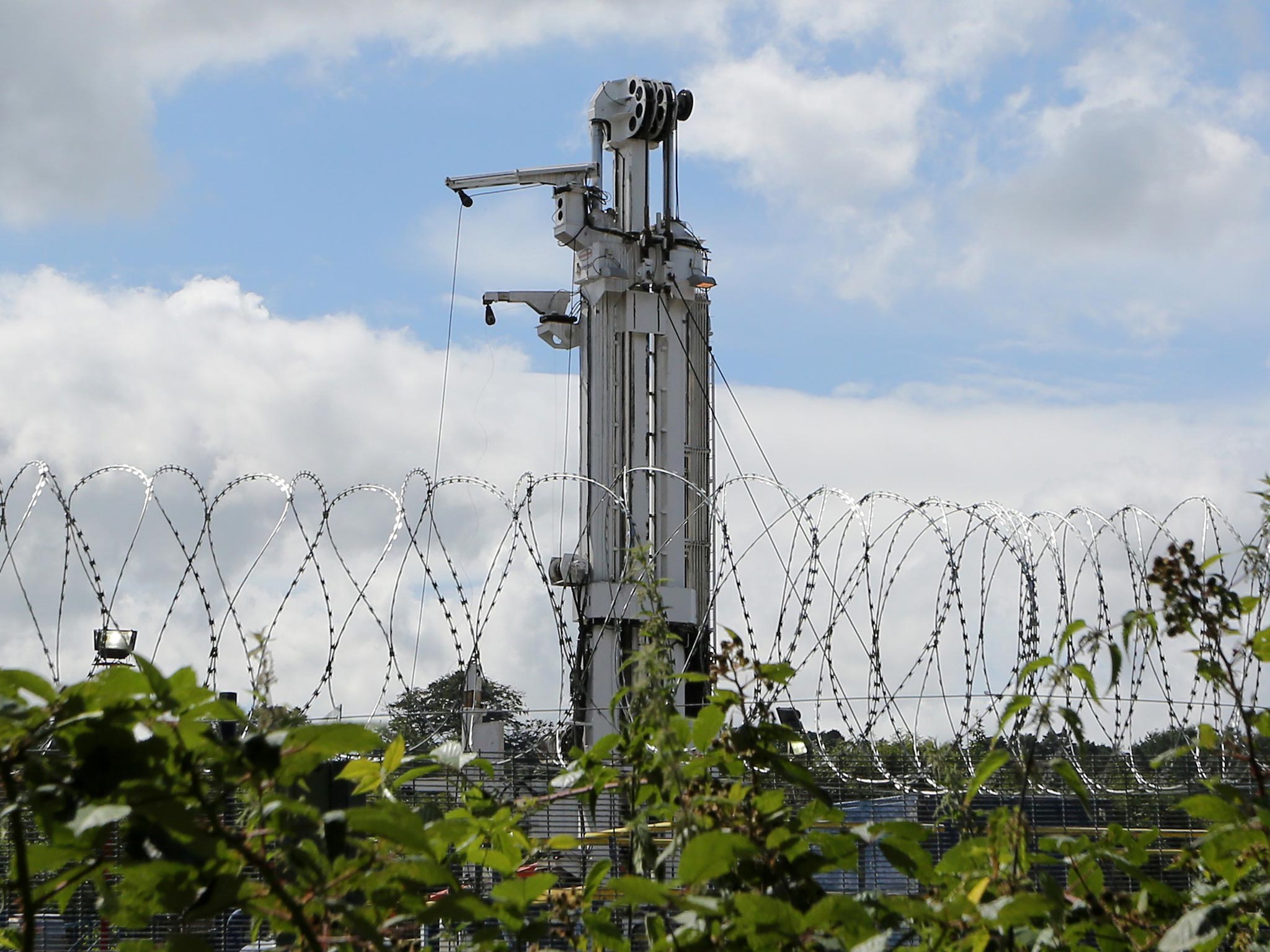No gas found in the Weald basin: Does this spell the end of the Government’s dream of a fracking revolution?
The survey casts doubt on exactly how much shale oil and gas the UK can produce - if any

Your support helps us to tell the story
From reproductive rights to climate change to Big Tech, The Independent is on the ground when the story is developing. Whether it's investigating the financials of Elon Musk's pro-Trump PAC or producing our latest documentary, 'The A Word', which shines a light on the American women fighting for reproductive rights, we know how important it is to parse out the facts from the messaging.
At such a critical moment in US history, we need reporters on the ground. Your donation allows us to keep sending journalists to speak to both sides of the story.
The Independent is trusted by Americans across the entire political spectrum. And unlike many other quality news outlets, we choose not to lock Americans out of our reporting and analysis with paywalls. We believe quality journalism should be available to everyone, paid for by those who can afford it.
Your support makes all the difference.The Government’s dream of kickstarting a fracking revolution has suffered a major setback after a survey of one of the UK’s great shale gas hopes found no evidence of gas in the area.
And while the same survey – of the Weald basin, stretching from Wiltshire to Kent – did find an estimated 4.4 billion barrels of oil, the scientist who oversaw the project admitted it would be so difficult to extract that the basin would be unlikely to yield even 0.5 per cent of the oil so far extracted from the North Sea.
Robert Gatliff, director of energy and marine geoscience at the British Geological Survey, which produced the report, said: “It’s not a huge bonanza. But we have to see what happens.” He added: “It is going to be a challenge for the industry to get it out.”
The North Sea has produced about 40bn barrels of oil since the 1970s and is likely to yield between three billion and 24 billion more, according to industry estimates. But Mr Gatliff expects the Weald basin to yield no more than 220m barrels of oil, based on a generous extraction rate of about 5 per cent of the total estimated “resource”. This is less oil than Britain consumes in six months.
Asked if the findings were a let-down for the Government, Energy minister Michael Fallon said: “It’s not a let-down or a let-up. It is what it is.” He insisted the shale oil could still be a “significant addition to our homegrown energy supplies”.
However, industry experts said the survey acted as a stark reminder that despite the publicity fracking has received, it remains far from certain that shale oil and gas will be produced in the UK in significant quantities, if at all.
Dr Robert Gross, director of the Centre for Energy Policy and Technology at Imperial College London, said: “This survey underlines the need to keep a sense of perspective about the prospects for land-based fossil fuel production in the UK. It is highly unlikely that the UK will replicate the US experience in the foreseeable future.”
Bob Ward, director of policy at the London School of Economics Grantham Research Institute, said the findings “do not substantiate the continuing hype surrounding the UK’s shale gas and oil resources”.
Ministers have repeatedly pointed to the success of fracking in the US, where it has driven down gas prices.
The UK government is encouraging the industry, which has yet to produce any shale hydrocarbons on a commercial scale, by offering tax breaks to producers and financial incentives to local communities. Today, it proposed changing trespass laws to allow frackers to drill under households without their permission and an extra £20,000 of compensation to affected communities per horizontal well.
Join our commenting forum
Join thought-provoking conversations, follow other Independent readers and see their replies
Comments